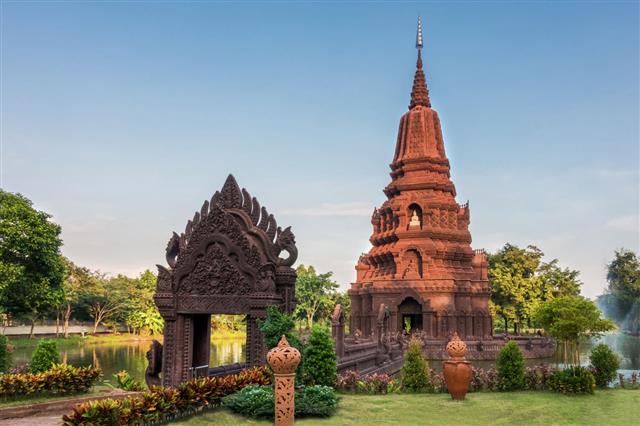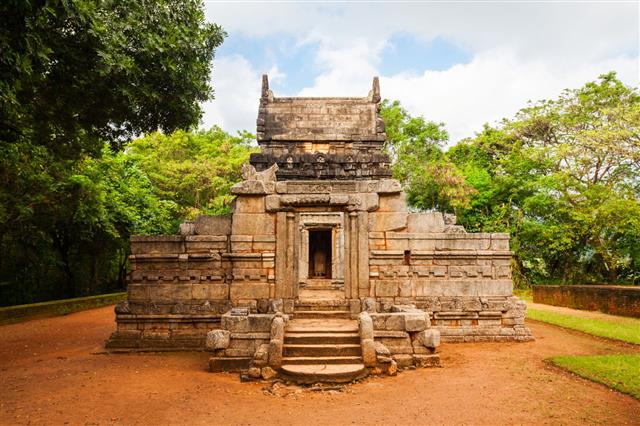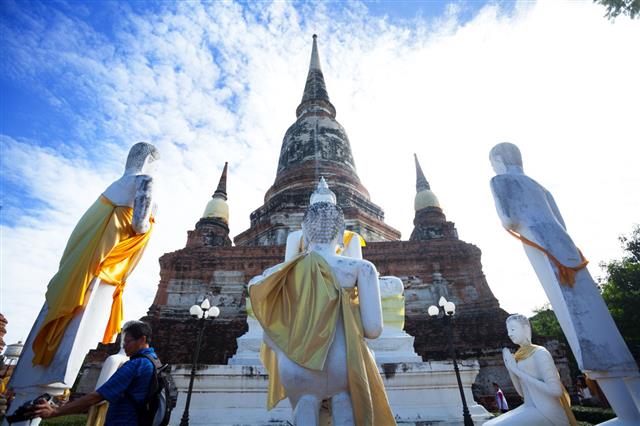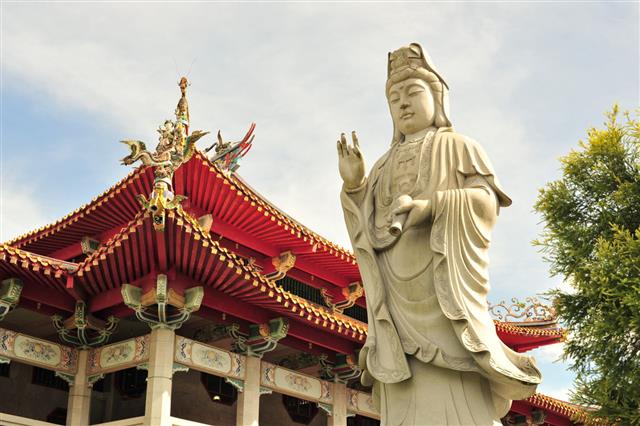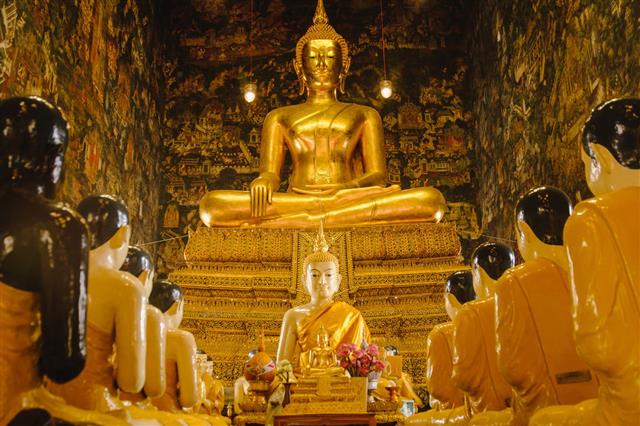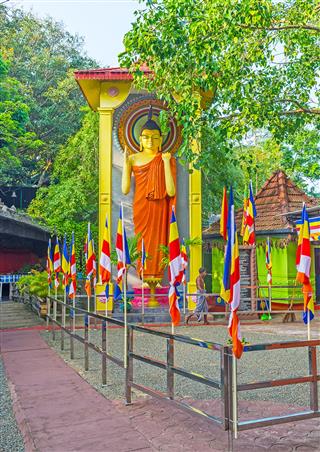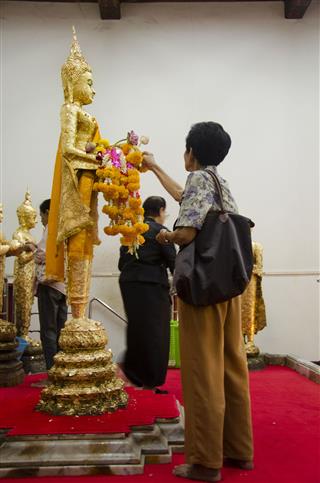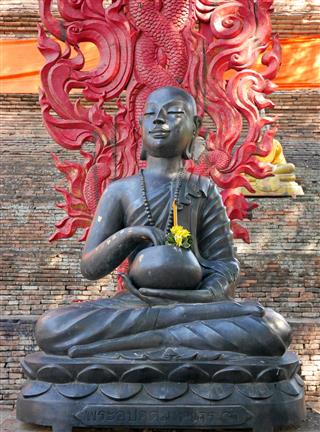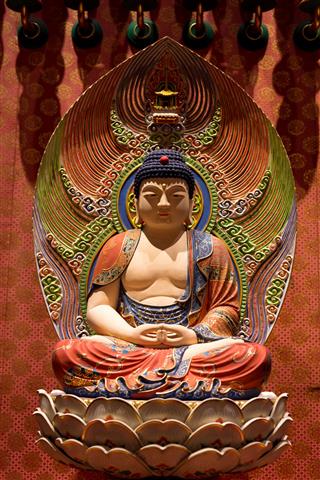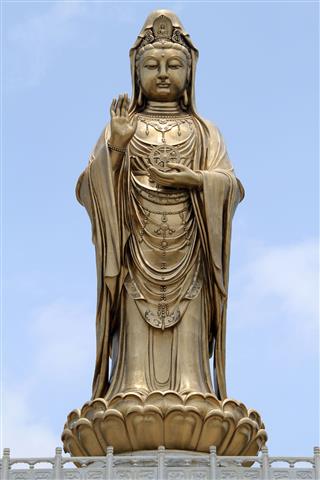
Does enlightenment mean only to gain wisdom in the religion of Buddhism? Or does it have any other significance attached to it? This SpiritualRay post shall deal with the basic ideas and philosophies that are related to the concept of attaining enlightenment in Buddhism.
To Be a Buddha
“What has to be known, that I have known,
What has to be abandoned, that I have abandoned,
What has to be developed, that I have developed, Therefore, O Brahmin, I am a Buddha.”
This was Buddha’s explanation to an old Brahmin about the meaning of enlightenment
The religion of Buddhism was founded by Siddhartha Gautama (also called The Buddha) in 6th century B.C. in the Indian Subcontinent. The Buddha achieved a state of bodhi or ‘enlightenment’ after many years of meditation under a fig tree (called the Bodh Gaya Tree). He taught his disciples the importance of enlightenment, and how one can achieve it with the power of meditation and by following the ‘Noble Eight-Fold Path of Buddhism’.
This spiritual state is achievable only after the sorrows and sufferings come to an end in one’s life, according to Gautama Buddha. The Eight-Fold Path is a means to end the pain or ‘dukkha’, along with a proper understanding of how joy, pleasure, compassion, wisdom, etc., have an effect on our lives. Another concept is related to the stage of enlightenment, called ‘Nirvana’, wherein one doesn’t have any desires, needs, and luxuries. Read the following sections to understand the definition of enlightenment in Buddhism, along with the basics and other important aspects.
Concept of Enlightenment in Buddhism
‘To attain supreme wisdom by understanding the divine truth of life’ is a signification of enlightenment in Buddhism. The method and ideology behind this truth varies among different schools of thought in this religion (for example, Tibetan Buddhism, Mahayana Tradition, Theravada Tradition, etc.), and also depends on one’s understanding of the Noble Eightfold Path. The following paragraphs shall give you a brief idea about the topic of enlightenment in this religion.
The Noble Eightfold Path of Buddhism
Being the fourth part of the ‘Four Noble Truths of Buddha’, the Eightfold Path teaches how to stop suffering or ‘dukkha’, and to reach a state of self-awareness and self-awakening. All bad virtues like greed, jealousy, hatred, etc., cease to operate if one follows this path in a proper manner. The Four Noble Truths are: ‘The Truth of Dukkha’, ‘The Origin of Dukkha’, ‘The Ending of Dukkha’, and ‘The Path that can lead One to the Ending of Dukkha’. The principle of non-attachment is also related to these truths, wherein one has to give up all the possessions to begin a spiritual journey. The Buddha left his home at an early age and gave up all his belongings in order to seek a spiritual awakening.

The Noble Eightfold Path is divided into three sections: Wisdom, Ethical and Right-mannered Conduct, and Concentration. In the first category, i.e., Wisdom, the aspects of right view and right intention are included. In the second category, Ethical Conduct, the parameters of right speech, right action, and right livelihood are placed, while the third category (Concentration) consists of right effort, right concentration, and right mindfulness. Training oneself by practicing these aspects is crucial if one wants to attain enlightenment.
Enlightenment According to Different Schools of Thought and Related Aspects
As Buddhism bifurcated into different schools that taught spirituality according to the respective scriptures and principles, the terminology related to enlightenment also differed. The methods may vary, but the followed principles are more or less the same. Theravada, Mahayana, and Vajrayana are the three main classes or variations of Buddhism. In the following sections, three main interpretations or stages or ‘enlightenment’ have been described briefly.
Arhat
When a person has experienced enlightenment till he attains Nirvana, the cycle of birth has death has ceased, and he is known as an Arhat. Thus, basically Arhat means a person who has had a kind of realization of a complete ending of pain and suffering. The person may be on a path to enlightenment but may not have reached the end, i.e., attained full Nirvana. Since numerous centuries, this term also has had varying definitions among the Theravada and Mahayana Buddhism school of thoughts. In the former, an Arhat has left all sins and vices to reach a state of Nirvana, while in the latter, he is regarded as the possible rebirth of ‘The Buddha’.
Bodhisattva
Also called the Enlightened Being, the Bodhisattva is an individual who had reached the path’s end, but often waits for the others to attain it first. Siddhartha Gautama is shown as a Bodhisattva in many old stories. Like Arhat, this term also has different meanings and interpretations, but the basic ideas remain the same. One can learn much about this supreme state in a simple manner by going through the Jatakas, which are tales about the life of Gautama Buddha. In Theravada Buddhism, a Bodhisattva might not always be the one who has achieved complete Nirvana; he might be someone who is on the correct path towards it.
Nirvana
The literal meaning of Nirvana is often regarded as ‘blown out’, i.e., one who has reached the path of enlightenment, left all the desires and belongings behind, and attained a spiritual state or has become an entity of pure and decontaminated self-awareness. In Hindu cultures, it is often referred to as attaining ‘Moksha’ i.e., ‘spiritual immortality’. But in Buddhism, attaining Nirvana mainly means a complete end or ‘tanha’, i.e., wants or cravings, ‘dukkha’ meaning sufferings, and ‘moha’ meaning ignorance. In Theravada Buddhism, attaining Moksha means an ending of pain and sufferings, while in Mahayana Buddhism, to attain Nirvana signifies the end of the path towards self-realization and enlightenment.
Apart from the different interpretations in Theravada and Mahayana Buddhism, in Vajrayana Buddhism, enlightenment is experienced due to two vehicles or pathways: the technique of mantra and the technique of perfection. In Tibetan Buddhism, it is believed that one can start on the path of self-awakening by removing sins like hatred, anger, jealousy, and negative thoughts from his mind, while in Zen Buddhism, the enlightenment is a spiritual state that can be attained believing and acting in a progressive manner.
The particular day when Siddhartha Gautama attained enlightenment is called ‘Bodhi Day’ in many countries, and the celebrations vary as per the different schools of Buddhism. Also called Rohatsu, this day is celebrated in the Mahayana Buddhist tradition In China, Tibet, Korea, Japan, etc. In Zen tradition, Rohatsu is celebrated with reference to the attainment of enlightenment by the Buddha in December.
